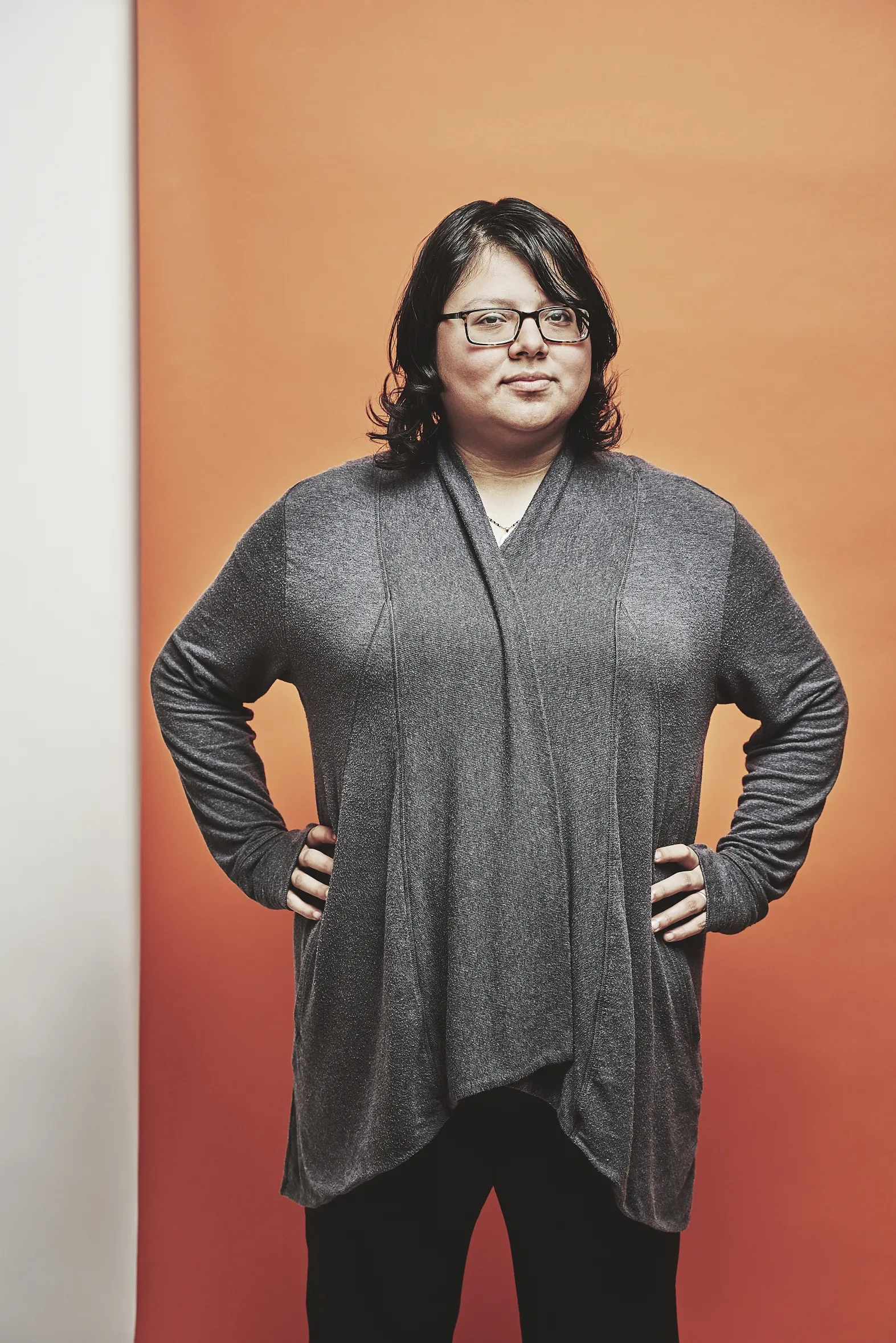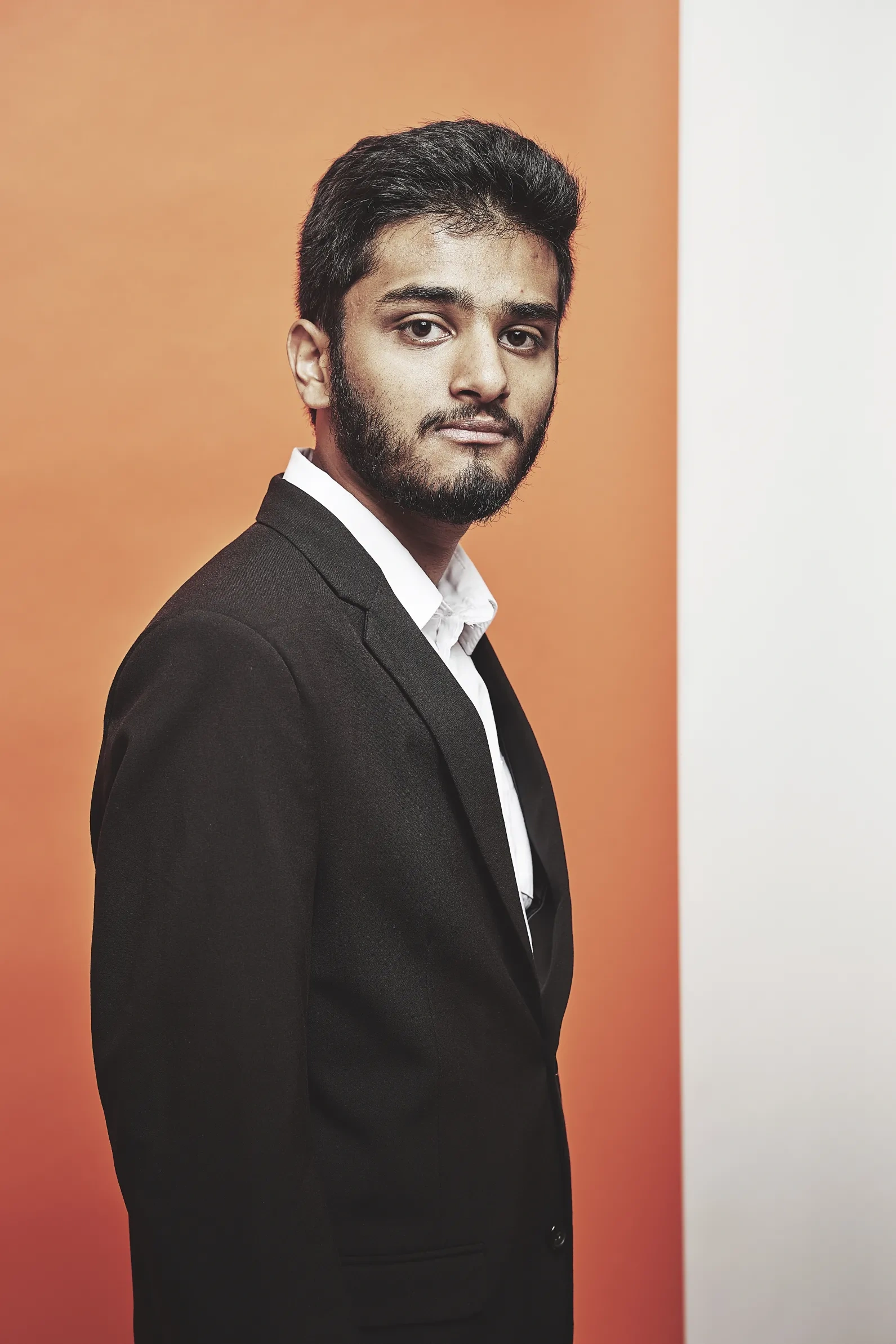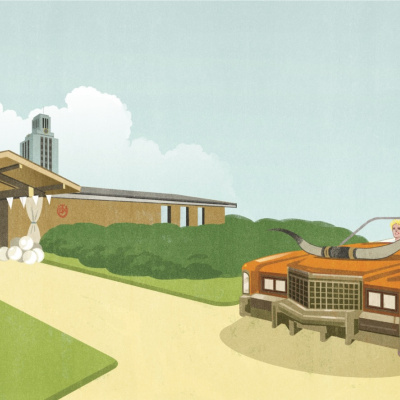Celebrating UT's First-Generation Students on Campus

"Statistically speaking, I shouldn’t even be at UT,” senior Margarita Herrera says when we meet. She proceeds to list off a number of reasons: she’s an immigrant, her mother had her when she was 16, her incarcerated father was abusive, no one in her family has attended a university before, and she comes from a low-income household. But that hasn’t stopped her from getting to where she is today—at The University of Texas, on a path to becoming the first woman from El Salvador to ever receive a degree in aerospace engineering.
Herrera is one of 9,000-plus people on campus who UT Austin classifies as a first-generation college student, meaning someone who comes from a family where neither parent or guardian has a four-year degree or higher from a college or university. It’s a term that can also include students whose parents have degrees from outside of the U.S. With 20 percent of the student body comprised of first-generation college students as of the fall of 2018, UT Austin has been working to ramp up initiatives for students like Herrera.
Efforts began in 2017, when UT hosted its inaugural First-Generation Student Kick-Off Weekend, headed by former student body president and first-generation student Alejandrina Guzman. By spring 2018, a charge was initiated to create the First-Generation Commitment Working Group, which includes students, faculty, and staff from across campus to identify ways to support first-generation Longhorns. And in the summer of 2018, UT welcomed 330 family members of first-generation students to campus during Family Orientation.
“We’ve been making sure we have ways to connect with students, seeing what gaps in resources exist, and improving on services for these students,” says Mike Gutierrez, BA ’13, MEd ’15, Life Member, the senior program coordinator for Student Success Initiatives and a first-generation Longhorn himself.
The rolling out of these new initiatives wrapped up in early November on National First-Generation College Celebration Day, a day to honor students, when UT hosted its inaugural annual First-Generation Celebration inside the Tower. Nearly 500 students, faculty, and guests gathered for the four-hour celebration, which included speakers, games, food, a chance to meet other first-generation students, an opportunity to write letters to their supporters, and take a professional headshot. “A first-generation college student is someone who is going to change the world,” Senior Vice Provost for Enrollment Management Rachelle Hernandez said to the crowd.
During the celebration, Student Government Representative Vinit Shah, a first-generation college student and public health and history sophomore from Fort Worth, took the podium to read aloud a piece of legislation passed by the Assembly of Student Government that proclaims the importance of the first-generation celebration.

“I wanted to have the chance to explore my own life,” Shah tells me of his decision to attend UT. Though his parents, neither of whom attended a four-year university, instilled the importance of higher education in him, Shah found it wasn’t always easy convincing them to let him move away from home.
“They see college as such a foreign place and get their ideas from movies and stories,” he laughs. “They think it’s all crime, partying, and no studying.”
Before he applied to college, Shah had never seen the Forty Acres. He remembers when he arrived freshman year feeling overwhelmed and sometimes lonely. But soon enough, he carved a space for himself, joining Student Government and the Indian Students Association, and becoming a peer educator with the Counseling and Mental Health Center. “Some of the biggest problems first-generation students face are issues of inclusion and feeling like they’re welcome,” Shah says. “But UT has helped me come out of my shell.”
Herrera didn’t know how lost she was when applying to UT, a common struggle for many first-generation students. Thinking she had submitted all that she needed to by the deadline, she was disheartened when she realized she was missing some crucial forms. Only “by God’s grace,” she says, did the university announce there had been a glitch in the system and students had an extra week to resubmit their forms.
Herrera was admitted. Though her foot was in the door, things didn’t get easier. With no help from her mother financially, she secured multiple scholarships to ensure she could pay for housing and tuition. She works odd jobs on and off throughout the year for some extra money, usually sending whatever she makes home to help her mother and four younger sisters—sometimes, she goes without eating. In her sophomore year, she started experiencing panic attacks, and her doctor diagnosed her with depression and post-traumatic stress disorder, likely caused by her childhood trauma.
Despite navigating these hardships, she has loved her time at UT. She’s proud of what she’s accomplished. And though times can be tough, Herrera makes a concerted effort to get engaged. She’s a student ambassador for the Texas Exes, and a member of the Society of Engineers. “I learned to be my biggest advocate,” she says.
Gutierrez says the most common issue he sees first-generation Longhorns face is navigating the system. Students often need better communication, but he says that’s what UT hopes to achieve with its initiatives. “No one can really blame the students,” he says. “UT is helping to create a one-stop center in the Tower where students can get help for financial aid and different services—to get stuff done in one space.”
Next summer, Herrera will be an intern at either The Boeing Company or Lockheed Martin—she hasn’t decided yet. Her dream is to work on a mission to go to Mars. She didn’t make it out to the First-Generation Celebration like she had hoped. Though she RSVPed, she felt too sick to attend. That’s just how some days go.
But even on the days that are hard, she thinks about her sisters, two who live in Dallas and two who still live in El Salvador. She says everything she’s working toward is for them, to be their role model who can one day help put them through college. And, she says, she speaks about her experiences so that others like her know a different life is possible.
“I was just meant to be here,” she says.
Photographs by Matt Wright-Steel






